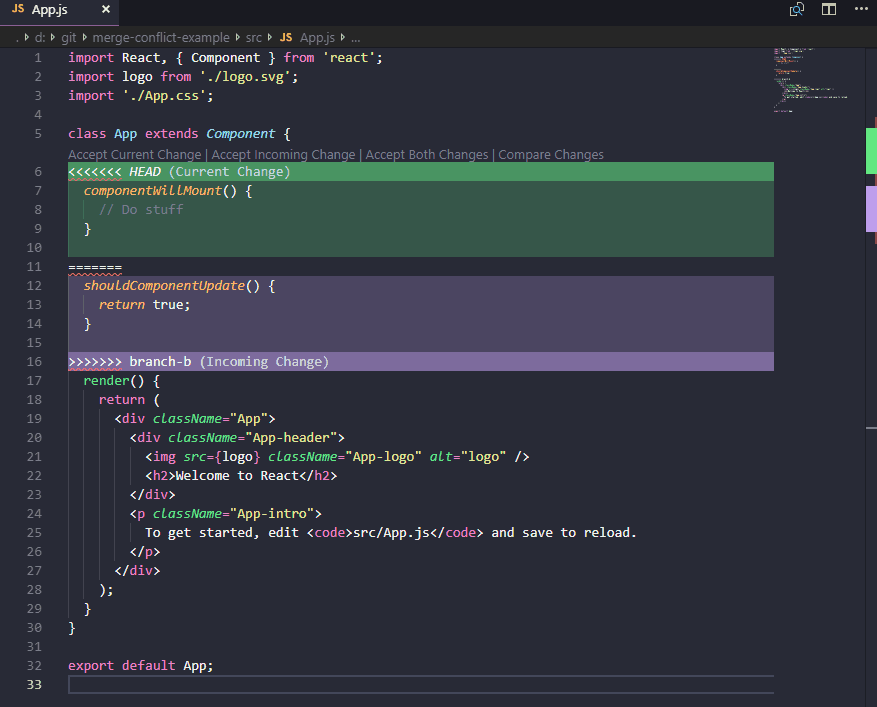

When you properly understand these things, you'll be able to deal with merge conflicts in a much more relaxed and confident way. My intention with this article is to bring some clarity to this topic: how and when conflicts typically occur, what they actually are, and how to solve - or undo - them.

While it's true that merge conflicts are an unavoidable part of a developer's life, the discomfort in these situations is fully optional.

Handling conflicts often remains a dark, mysterious place: a situation where things are badly broken and it's unclear how to get out of it (without making things worse). 😱 There's just no way around the occasional merge conflict when working with Git (or other version control systems).īut when speaking with developers, I often hear that there's a sense of anxiety or discomfort around the topic of merge conflicts. Now you may use vscode as your git difftool $ vi main.go $ git difftool diff -cc README.md index 54f96a6,b197bb6.0000000 - a/README.md +++ b/README.md -21,10 -21,9 +21,16 go get -u /kenichi-shibata/ku Usage - ``` ++ or from config file ~/.kube/kubectl/config +kubectl-switch download +kubectl-switch -k v.1.11.9 +# list available versions ++= + +# downloads v1.14.3 or -k or from config file ~/.kube/kubectl/config + +kubectl-switch downloadzs + +kubectl-switch -k v.1.11.9 ++> downloadz ls ~/.kube/kubectl/ ``` Config Viewing (1/1): 'main.There it is, the word that every developer hates to see: conflict. Add the below configuration to your gitconfig to start # Add this to you gitconfig # Comment: Start of "Extra Block" # Comment: This is to unlock VSCode as your git diff and git merge tool tool = vscode cmd = code -wait $MERGED tool = vscode cmd = code -wait -diff $LOCAL $REMOTE # VSCode Difftool # End of extra block If you are you can also use vscode as your difftool and your mergetool. Chances are you are using git as your source control.


 0 kommentar(er)
0 kommentar(er)
